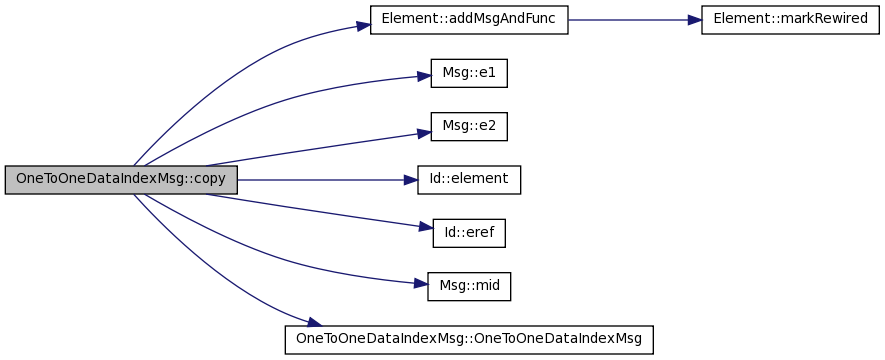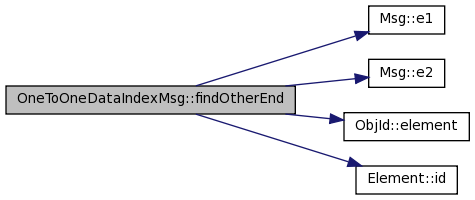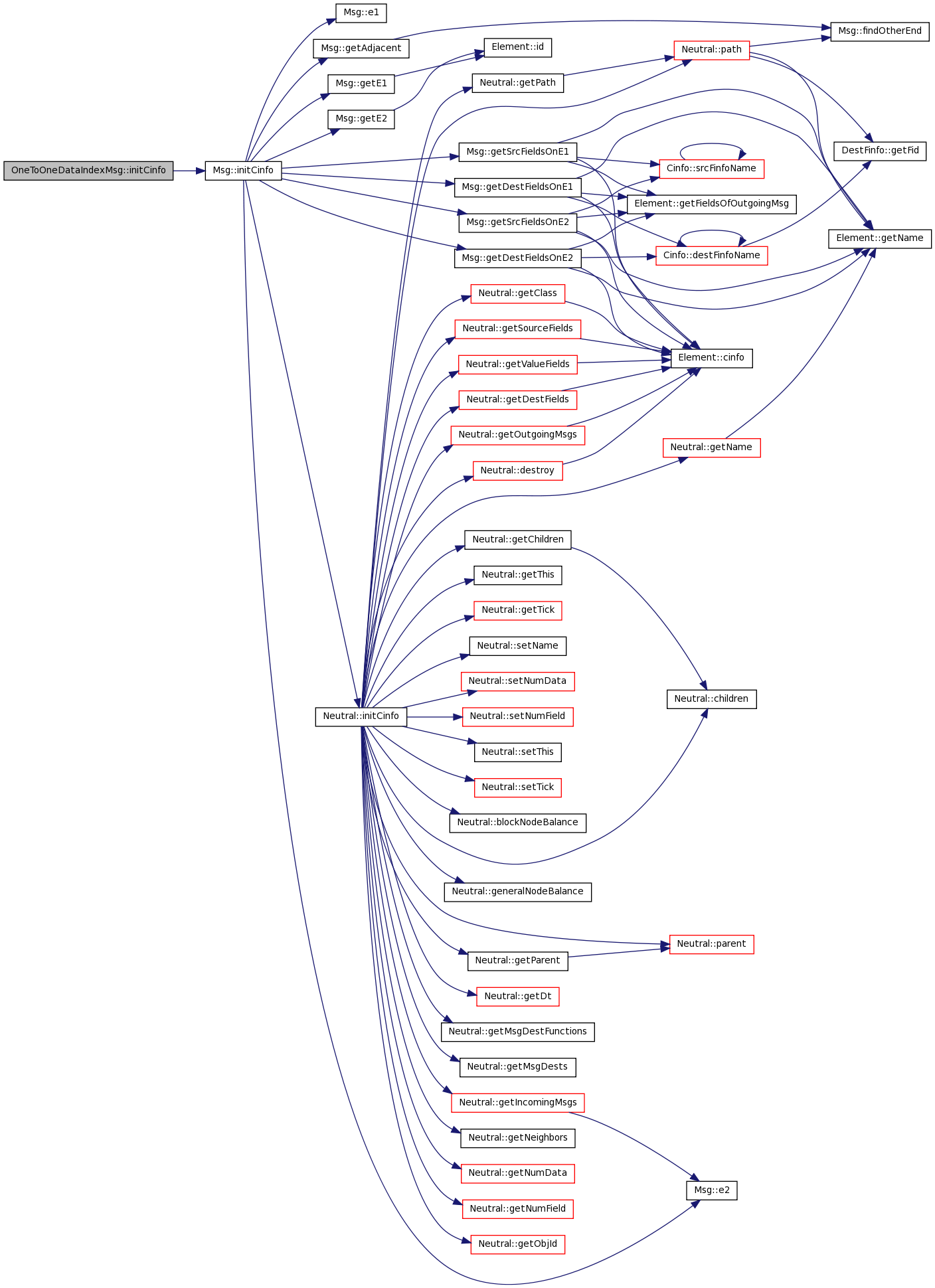OneToOneDataIndexMsg Class Reference
#include <OneToOneDataIndexMsg.h>


Public Member Functions | |
| OneToOneDataIndexMsg (const Eref &e1, const Eref &e2, unsigned int msgIndex) | |
| ~OneToOneDataIndexMsg () | |
| Eref | firstTgt (const Eref &src) const |
| void | sources (vector< vector< Eref > > &v) const |
| void | targets (vector< vector< Eref > > &v) const |
| Id | managerId () const |
| ObjId | findOtherEnd (ObjId end) const |
| Msg * | copy (Id origSrc, Id newSrc, Id newTgt, FuncId fid, unsigned int b, unsigned int n) const |
Static Public Member Functions | |
| static unsigned int | numMsg () |
| Msg lookup functions. | |
| static char * | lookupMsg (unsigned int index) |
| Static function for Msg access. | |
| static const Cinfo * | initCinfo () |
| Setup function for Element-style access to Msg fields. | |
Friends | |
| unsigned int | Msg::initMsgManagers () |
Detailed Description
Manages a projection where each entry in source array connects to the corresponding entry (with same index) in dest array. If there is a mismatch in number of entries, the overhang is ignored. This differs from the regular OneToOne msg because even if the dest array is a FieldElement, it still does a mapping between the DataIndex of src and dest.
Constructor & Destructor Documentation
| OneToOneDataIndexMsg::OneToOneDataIndexMsg | ( | const Eref & | e1, | |
| const Eref & | e2, | |||
| unsigned int | msgIndex | |||
| ) |
Referenced by copy().
| OneToOneDataIndexMsg::~OneToOneDataIndexMsg | ( | ) |
References ObjId::dataIndex, and Msg::mid_.
Member Function Documentation
| Msg * OneToOneDataIndexMsg::copy | ( | Id | origSrc, | |
| Id | newSrc, | |||
| Id | newTgt, | |||
| FuncId | fid, | |||
| unsigned int | b, | |||
| unsigned int | n | |||
| ) | const [virtual] |
Make a copy of this Msg. The original msg was on origSrc. The new Msg should go from newSrc to newTgt, and have the function fid, on bindIndex b. The copy may have to be a higher-order Msg type to handle arrays if n > 1. Note that n is not the number of msgs, but the multiplier by which numData will be scaled.
Implements Msg.
References Element::addMsgAndFunc(), Msg::e1(), Msg::e2(), Id::element(), Id::eref(), Msg::mid(), and OneToOneDataIndexMsg().

Find the other end of this Msg. In most cases this is a straightforward return of e1 or e2, plus perhaps a DataId. But in some complex msgs we need to figure out DataIds that match with the target. In many-to-one cases we just return the first entry. If no Element match, return ObjId( Id(), DataId::bad() ) If Element e matches but not DataId, return ObjId( e.id(), DataId::bad() )
Implements Msg.
References BADINDEX, ObjId::dataIndex, Msg::e1(), Msg::e2(), ObjId::element(), and Element::id().

This is a little tricky because we might be mapping between data entries and field entries here. May wish also to apply to exec operations. At this point, the effect of trying to go between regular data entries and field entries is undefined.
Implements Msg.
References Eref::dataIndex(), Msg::e1_, Msg::e2_, and Eref::element().

| const Cinfo * OneToOneDataIndexMsg::initCinfo | ( | ) | [static] |
Setup function for Element-style access to Msg fields.
Reimplemented from Msg.
References Msg::initCinfo().
Referenced by Msg::initMsgManagers().

| char * OneToOneDataIndexMsg::lookupMsg | ( | unsigned int | index | ) | [static] |
Static function for Msg access.
Referenced by Msg::initMsgManagers().
| Id OneToOneDataIndexMsg::managerId | ( | ) | const |
| unsigned int OneToOneDataIndexMsg::numMsg | ( | ) | [static] |
| void OneToOneDataIndexMsg::sources | ( | vector< vector< Eref > > & | v | ) | const [virtual] |
Return all the sources of e2 from e1, that is, all the msgs coming into specified entries on e2 from e1.
ALLDATA used when the sources include all data entries on a source. Indexing is v[dataId in range e2.numData][src list]
Implements Msg.
| void OneToOneDataIndexMsg::targets | ( | vector< vector< Eref > > & | v | ) | const [virtual] |
Return all the targets of e1 on e2, that is, all the msgs going from specified entries on e1 to e2. ALLDATA used when the targets include all data entries on a target. Indexing is v[dataId in range e1.numData][tgt list]
Implements Msg.
Friends And Related Function Documentation
| unsigned int Msg::initMsgManagers | ( | ) | [friend] |
The documentation for this class was generated from the following files:
 1.6.1
1.6.1